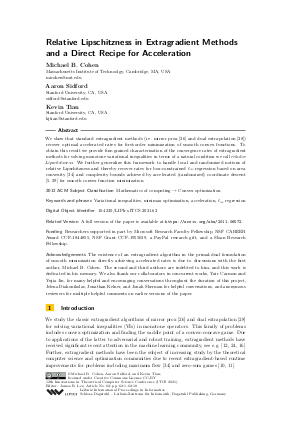LIPIcs.ITCS.2021.62.pdf
- Filesize: 0.55 MB
- 18 pages

 Creative Commons Attribution 3.0 Unported license
Creative Commons Attribution 3.0 Unported license
































Feedback for Dagstuhl Publishing